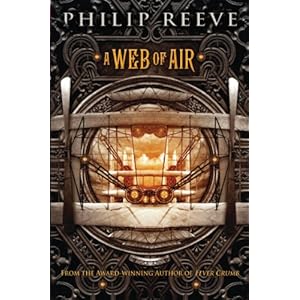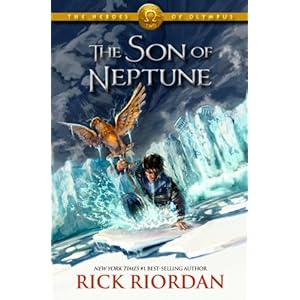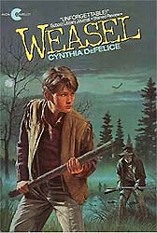
How I found this book: Picked it up because I'd also just picked up Divergent by Veronica Roth, both of which being rec's from a friend of mine.
(Picture found on the author's website.)
I'm going to leave off the proper plot summary because it's really not the best part of the book - in fact, it could turn off some people who are tired of love triangles, enough so that they miss a really fine novel.
You may have heard that this book is a "rip-off of The Giver." I did certainly notice some similarities... For people who've read The Giver as their "first dystopia" just like I did, it's a little familiar. But then it's also very different. It's a teen vision, a girl's vision.
The world of Cassia's Society is almost a utopia - until one thinks about it. It's peaceful, beautiful, safe. No one has to worry about choices - or choosing wrong. Nearly all disease is gone, nearly all accidents. The food is perfectly portioned, the schedule of each person detailed, by the Officials. There's no obvious show of force or coercion. Even death is made a quiet, formal thing, when each citizen dies peacefully at precisely 80 years of age. 100 poems, 100 songs, 100 works of art are there - selected by the creators of the Society. There's no fear and no change.
Cassia's personal view of her quiet, pretty world changes twice in quick succession. First, when her "Match" - the person she's later going to be married to - turns out to be her friend Xander... but then a picture of another boy appears briefly inside the "match" information package. An Official assures her that this is merely a mistake, and that the boy whose picture she briefly saw is not even allowed to be Matched, as he is an Aberration. But he's also a boy who she's met before. Second, her grandfather turns 80 and dies painlessly as is usual in the Society - but he shows her a gift that ought not to even exist... a piece of paper with two poems that were not within the 100.
It's more than a "love triangle" when Cassia finds herself liking Ky - the Aberration - as well as Xander. It's a choice she's wavering in - between the simple childhood friend, the one she views as the Society's choice for her, and the odd boy who teaches her how to write her name and shows her the poems that he makes up. And she has allies in this "rebellion" that she chooses to make - the memory of her grandfather, and one of the poems that he gave her: Dylan Thomas's Do Not Go Gentle into That Good Night.
(I used to not like that poem, but now I do a good deal more. Perhaps whenever I read it, I will have a little mental picture of a girl in a green dress, holding a glint of gold in her hand.)
Cassia's not a brave revolutionary. She burns poems out of fear - but she loves the words that she feels driven to destroy. But she knows in the end what choices to make - and she is brave - tremendously brave.
I like that this book honors the connection between individuals. Cassia confides in her family members, and they in her. She loved her grandfather and honors his memory. She speaks the truth to Xander about her feelings for Ky, saying before she does - "I could love him. I do love him. And because I do, I have to tell him about Ky. I do not mind stealing from the Society. But I will not steal from Xander any longer. Even if it hurts, I have to tell him. Because either way, whichever life I build, has to be built on truth."
I had to include that last quote. It's one of the best lines I've read for a long time in a YA book. And, in a way, it captures what I see as the essential inside message of Matched - that life has to be built on truth, not just fact but truth.
---
It would be a quick step from there to speaking of the Truth Himself - a step that the Ms. Condie, however, doesn't choose to take. But for a modern YA dystopia novel - this one is on par with The Hunger Games as the most relevant, truth-filled one I've read yet.
In my opinion, the most chilling scene of the whole book is near the beginning. Cassia's father works on collecting artifacts for the Officials to review. Cassia goes to his worksite at one point. They're excavating an old library.
"The workers...suck up piles of papers with the incineration tubes. My father told us that right when they thought they had gone through everything, they found steel boxes of books buried down in the basement. Almost as though someone tried to hide and preserve the books against the future. My father and the other Restoration specialists have been through the boxes...they will incinerate all of it."
"...There are few piles of books left...the workers move from one to another... It's faster to incinerate individual pages instead of books, so they slice the books open, gutting them along the spines, preparing them for the tubes."
"...The books' backs are broken; their bones, thin and delicate, fall out. The workers shove them toward the incineration tube; they step on them. The bones crackle under their boots like leaves..."
Shudder.
Ms. Condie is an English teacher, according to her bio. I know that to her as well as to me, this is a terrible image.
---
Age rec - This could almost be upper MG and up. There's no swearing, nothing more than kissing in the romance. But, as in all dystopia novels, the premise is a good bit disturbing.
For ages 14 and up - go for it!
Especially rec'd for those who aren't quite up for the violence and emotion of The Hunger Games but want to read a wisely-handled novel of this sort.






